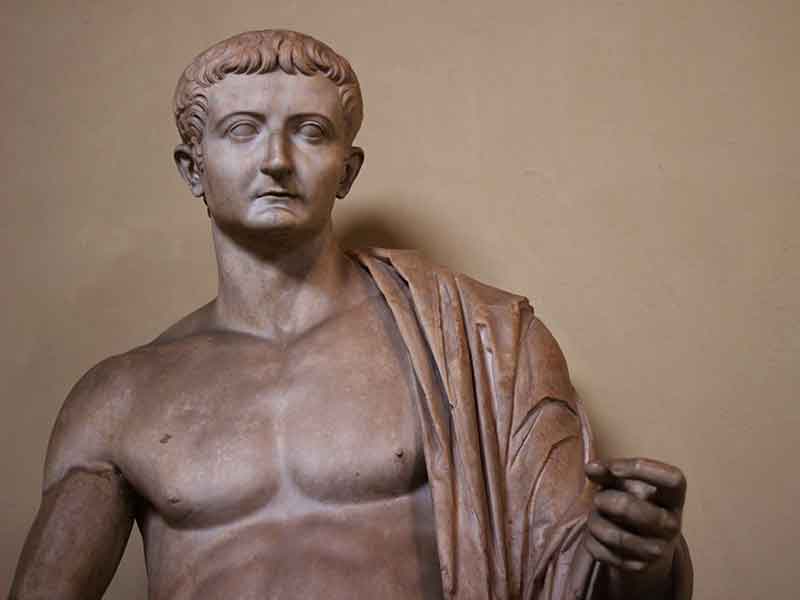Proud to introduce to you Emperor Tiberius
Emperor Tiberius: A Complex Legacy and Critical Role in Roman History
Emperor Tiberius, born Tiberius Julius Caesar Augustus, was the second Roman Emperor and the adopted son of Augustus, the empire's first ruler. He succeeded Augustus in 14 CE and ruled until his death in 37 CE. His reign was marked by efforts to preserve the imperial institutions established by Augustus, a successful military career, effective administration, and a later period of reclusiveness and controversy.
Adoption
Adopted son of Augustus
Emperor
From 14 to 37 CE
Death
March 16, 37 CE, in Capri
Early Life and Political Role
Tiberius was adopted by Augustus and carefully groomed for leadership. Upon becoming emperor, he sought to uphold the political framework and territorial boundaries established by his predecessor. He skillfully navigated the complex relationship with the Roman Senate, maintaining a delicate balance of power even as tensions grew. His political approach emphasized respect for the Senate, especially during his early reign.
Military Achievements
Before ruling Rome, Tiberius built a formidable military reputation, known for his bravery and strategic skill. As emperor, he ensured the stability of Rome's frontiers, avoiding major wars or costly campaigns. His military background contributed significantly to the security and longevity of the empire during his tenure.
Later Years and Decline
IIn his later years, Tiberius withdrew from active governance, retreating to the island of Capri. This self-imposed exile coincided with a growing reputation for paranoia and tyranny. His relationship with the Senate deteriorated as he suspected conspiracies and punished perceived enemies ruthlessly, leaving a legacy tarnished by fear and political repression.
Death and Succession
Tiberius died on March 16, 37 CE, on Capri. His reign ended without clear succession planning, leading to political uncertainty that affected the stability of the Julio-Claudian dynasty.
Critical role in the Roman Empire
Emperor Tiberius played a critical role in the Roman Empire, serving as the second emperor of the Julio-Claudian dynasty from 14 to 37 CE. Here are some of his significant contributions:
Preservation of Imperial Institutions: Tiberius sought to preserve the imperial institutions and boundaries established by Augustus, his adoptive father.
Military Career: Tiberius had a long military career before becoming emperor, demonstrating bravery and military prowess.
Effective Administration: Tiberius was known as a diligent and scrupulous administrator, and he maintained the borders and finances of the Roman Empire well, avoiding major conflicts, wars, or campaigns.
Construction Projects: Tiberius commissioned the construction of many new roads, improving the infrastructure of Rome.
Reclusive Behavior: In his later years, Tiberius became increasingly reclusive and spent much of his time in self-imposed exile on the island of Capri.
Difficult Relationship with the Senate: Tiberius had a difficult, resentful relationship with the Senate and suspected many plots against him.
Succession Planning: Little was done to plan or secure Tiberius' succession, leading to political instability after his death.
Emperor Tiberius summary
Emperor Tiberius played a critical role in the transition of power from Augustus to the Julio-Claudian dynasty.
His accomplishments as a military leader and administrator were notable, but his later years and reputation have left a complex and controversial legacy in Roman history.

Content created by:
Alex Costin
Results driven services:
Digital Marketing
Need my expertise?
Contact me
No tracking cookies!
General information purposes only!
Business partners offers (backlinks):
Search Engine Optimisation agency:
SEO
Explore this city secret guide:
Barcelona
Outdoor recreational activity:
Canyoning
Wide range of financial services:
Chartered Accountant
Copyright © 2023-2025 Alex Costin